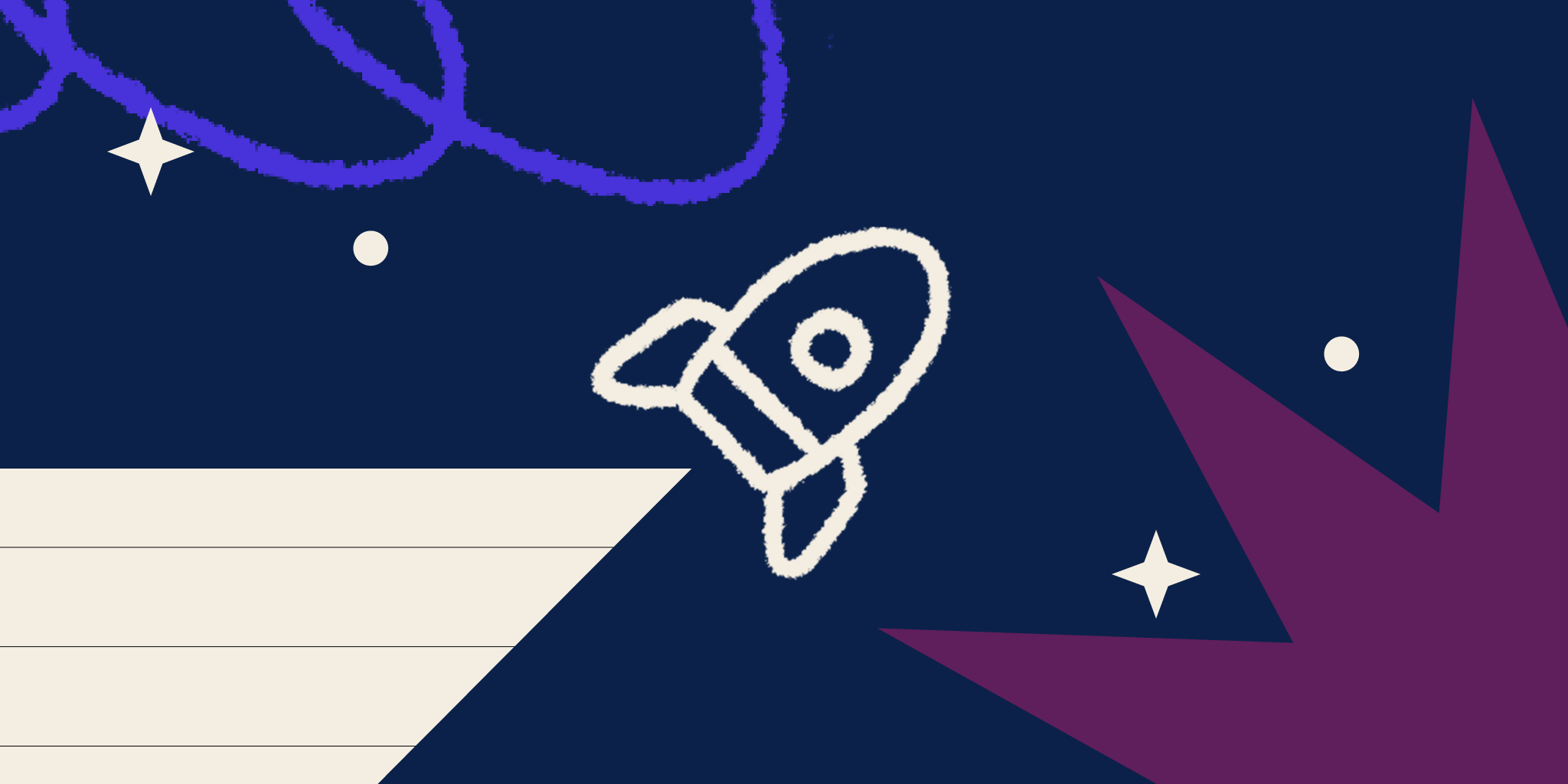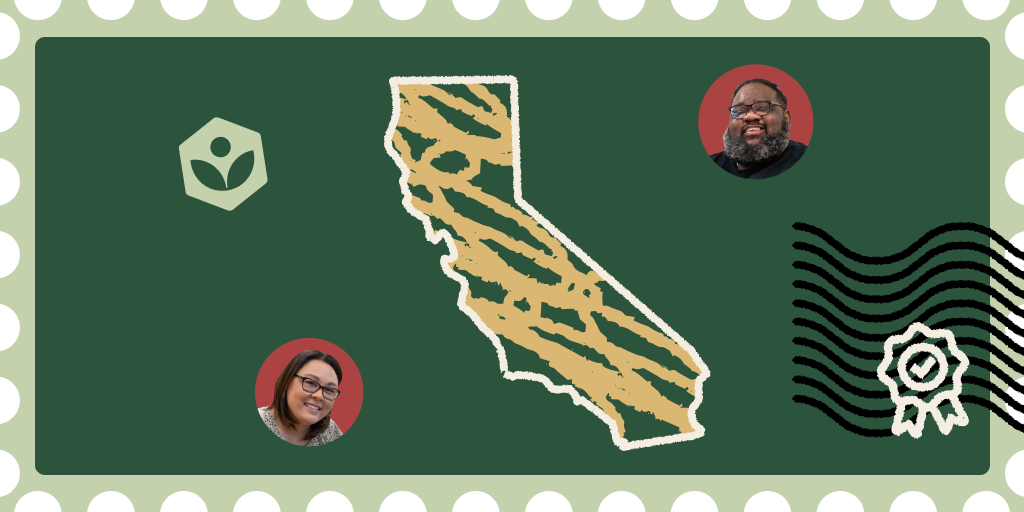We are excited to announce that our AP Biology course is newly updated and complete!
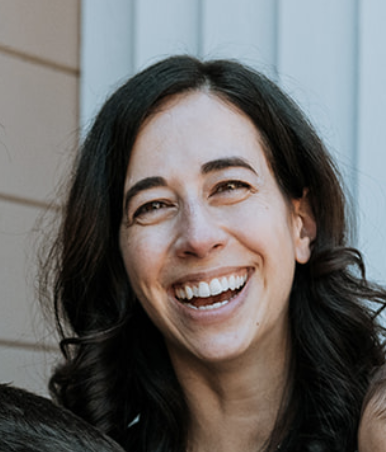
We spoke with Megan Cohn, the creator of the course and Khan Academy’s biology content creator, about her career path, her advice for young people who are considering a career in science, and how teachers and students can use the new AP Biology course on Khan Academy.
Khan Academy: What about the new AP Biology course makes you most excited?
Cohn: I’m super excited about Units 6–8, which cover gene expression, natural selection, and ecology—these are my favorite topics in biology. The units all have rigorous and engaging practice questions. The questions I wrote often present real research findings, show colorful images or diagrams, or are centered around interesting phenomena or cool locations.
But in general, I’m most excited that students and teachers have a free resource that they can use to learn biology and prepare for the AP Biology exam.
Khan Academy: What advice would you give to AP Biology teachers and students?
Cohn: The AP Biology exam is coming up, so I suggest taking the Course Challenge (which you can find at the bottom of the course page) to see what areas you need to review. Then, head straight to those units, spend some time with the instructional material, and do the exercises. If you’re having trouble with the exercises, you can use our hints and rationales to understand what you are missing.
Khan Academy: How did you get into science? Can you describe your career path?
Cohn: I’ve always loved biology, but it was my high school AP Biology class that really set me on the path to becoming a biologist. Thanks Mr. James! In college, I focused on marine biology and ecology. I even studied marine biology for a semester on a remote island in the Caribbean. This was a wonderful experience—every day, I got to observe many different marine species in their natural habitats, including manta rays, reef squid, and even barracuda.. I learned that there are an infinite number of questions that can be asked about the natural world, and just as many different approaches to answering those questions, some of which are even fun!
I got interested in molecular biology after college, when I started working in a lab that studied the molecules involved in how plants sense and respond to light. From that lab, I went to grad school and earned my PhD studying the molecular mechanisms of how certain bacteria cause diseases in plants. Super cool stuff!
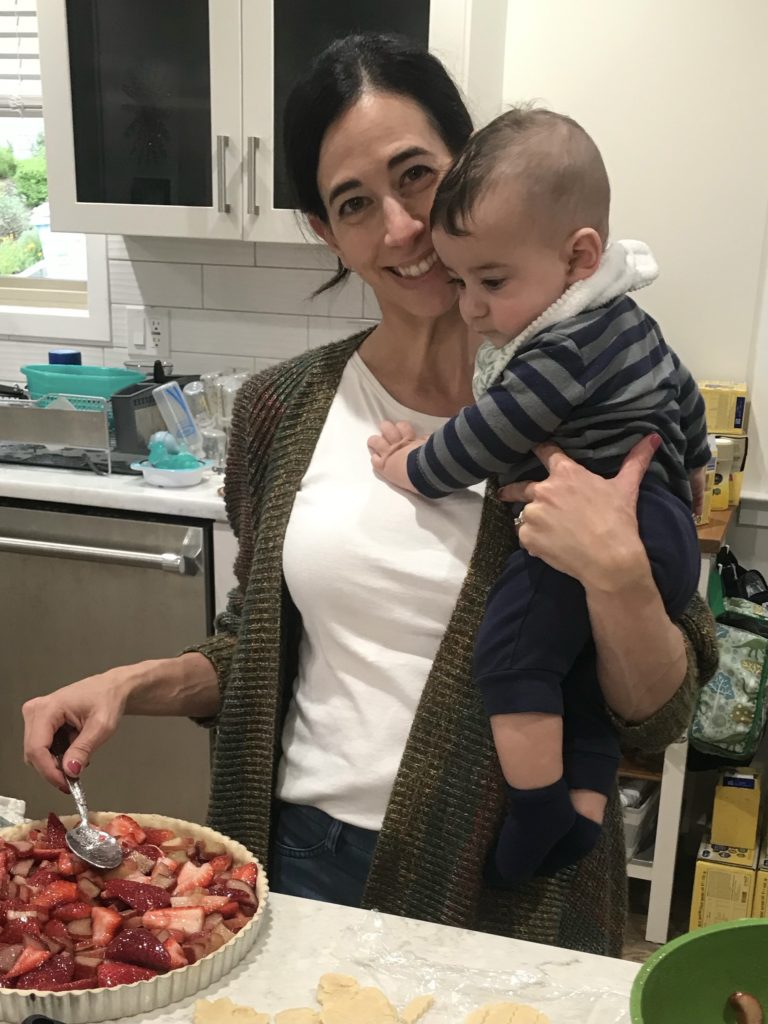
The biggest challenge I faced along the way was my own self-doubt. I had to work really hard to overcome the feeling that I didn’t belong or that I wasn’t smart enough to be a scientist, and I had to push forward even when I felt like giving up. I also became a parent while I was earning my PhD. There wasn’t a lot of support built into my program for new parents, so that was a challenging time.
Khan Academy: What advice would you give to girls (and boys!) who are considering a career in science?
Cohn: Anyone can learn science, and anyone can do science! No one is born with the knowledge and experience it takes to have a career in this field. Gaining this knowledge takes time and hard work, but if you are amazed by the world around you, then you can do it.
Also, having some basic computer programming skills will help a lot. Because of the recent and amazing technological advances in how we can gather data, many projects involve huge data sets, so basic coding skills can really come in handy.
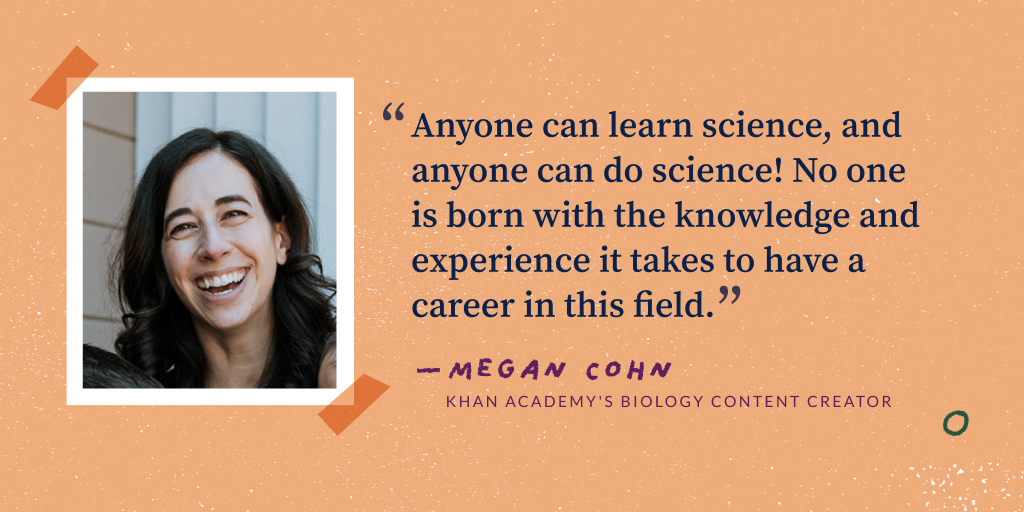
Khan Academy: We hear you also worked as a pastry chef. Were there any lessons you learned as a pastry chef that apply to your job as a scientist?
Cohn: I worked as a pastry chef in the Bay Area for about 5 years, between attending college and grad school. One of the biggest lessons I learned that applies to my job today is the importance of attention to detail. A missed detail when baking could lead to a flat souffle, and a missed detail in content creation can lead to a frustrated student. So, I work hard to pay attention to detail in all the work I do. A great life lesson I learned is how to be comfortable with failure—it’s OK if you don’t get something exactly right the first time you try. Whether it’s making the perfect chocolate chip cookies, or completing a successful experiment in the lab, getting things right takes time and patience.


